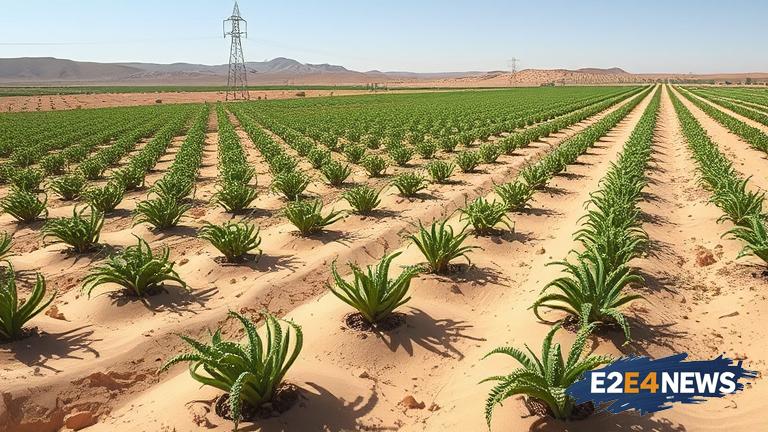Israel has long been a pioneer in agricultural innovation, and its latest endeavors in desert farming are no exception. The country’s agricultural sector has been working tirelessly to develop and implement new techniques to increase crop yields and promote sustainable agriculture in the desert regions. One of the primary methods being used is precision agriculture, which involves the use of advanced technology such as drones, satellites, and sensors to monitor and control crop growth. This approach allows farmers to optimize water usage, reduce waste, and increase efficiency. Additionally, Israeli farmers are utilizing advanced irrigation systems, such as drip irrigation, to conserve water and reduce evaporation. The use of greenhouses is also becoming increasingly popular, as they provide a controlled environment for crops to grow, regardless of the external weather conditions. Furthermore, Israel is investing heavily in research and development, with a focus on creating new, drought-resistant crop varieties. These innovative approaches are not only helping to increase agricultural production but also providing a model for other countries to follow. The Israeli government has also launched initiatives to support farmers in the desert regions, including subsidies for equipment and training programs. As a result, the country’s agricultural sector is experiencing significant growth, with exports of fresh produce increasing by over 10% in the past year. The majority of these exports are destined for Europe, where there is a high demand for high-quality, fresh produce. Israel’s innovative approach to desert farming is also attracting international attention, with delegations from around the world visiting the country to learn from its expertise. The country’s unique combination of innovative technology, skilled farmers, and favorable climate makes it an ideal location for desert farming. In fact, Israel is already home to several successful desert farming projects, including the famous ‘Farm of the Future’ in the Arava region. This farm is a showcase for the latest agricultural technologies and techniques, and has become a popular destination for tourists and agricultural experts alike. The farm’s use of advanced hydroponics and aeroponics systems allows for the growth of a wide range of crops, from leafy greens to fruit trees. The farm’s owners are also experimenting with new crops, such as quinoa and moringa, which are well-suited to the desert climate. As the global demand for food continues to rise, Israel’s innovative approach to desert farming is likely to play an increasingly important role in meeting this demand. The country’s expertise in this area is also likely to have a positive impact on the environment, as sustainable agriculture practices become more widespread. In conclusion, Israel’s desert farming sector is a shining example of innovation and sustainability, and is set to continue to thrive in the coming years. With its unique combination of technology, expertise, and favorable climate, Israel is poised to become a leader in the global agricultural market. The country’s commitment to sustainable agriculture and environmental protection is also likely to have a positive impact on the planet, and will help to ensure a food-secure future for generations to come. Israel’s desert farming sector is a true success story, and one that is worth learning from. The country’s innovative approaches to agriculture are a testament to its ingenuity and determination, and are an inspiration to farmers and agricultural experts around the world.
